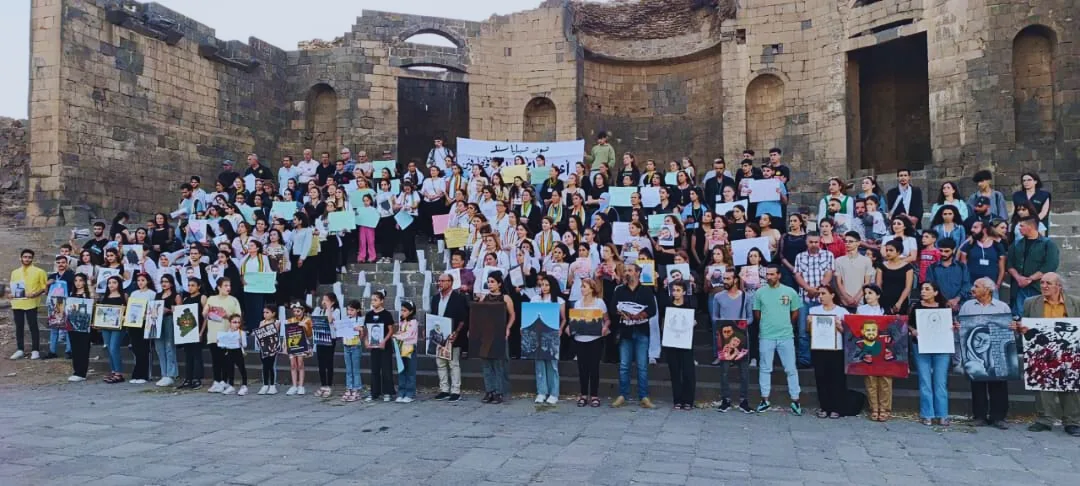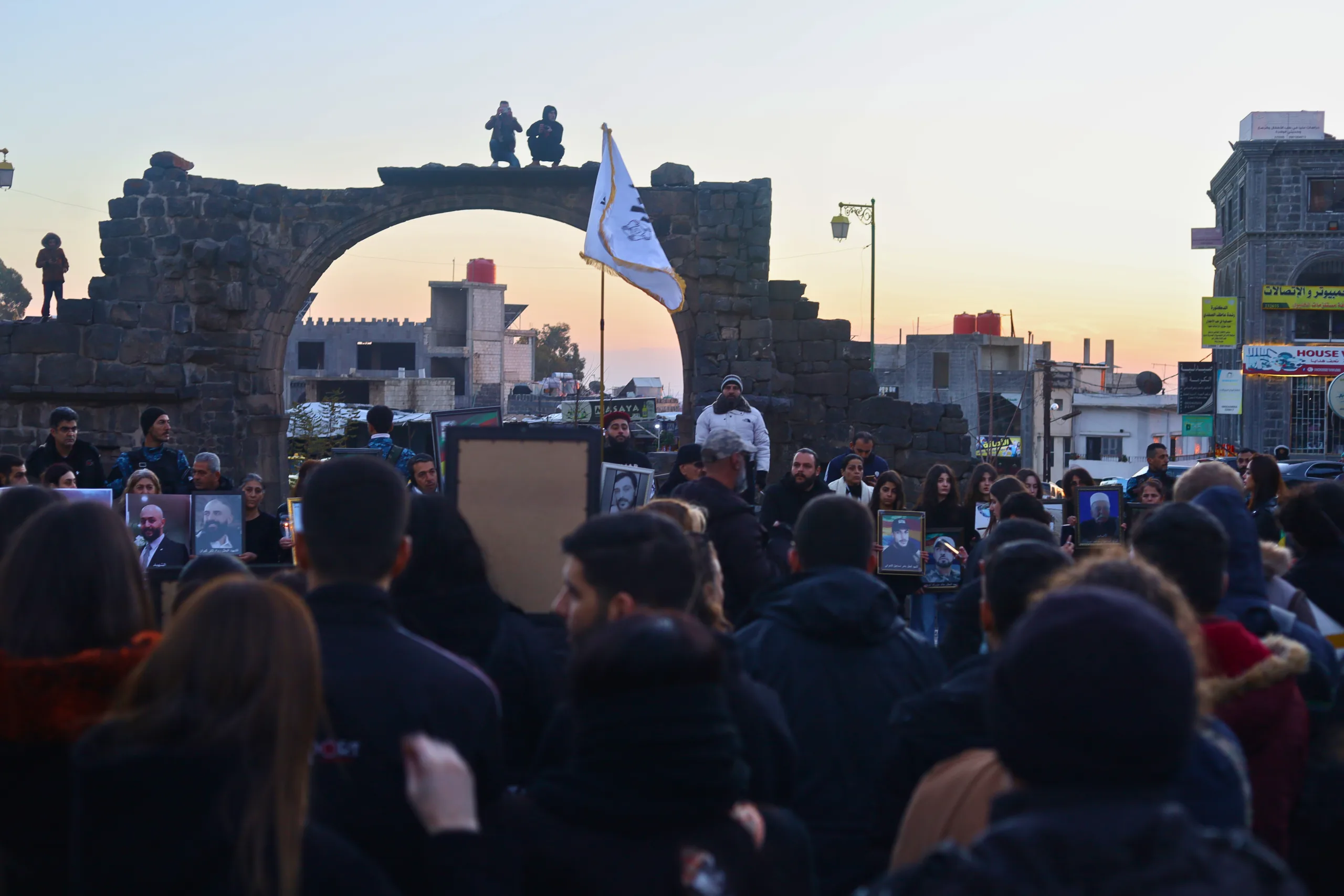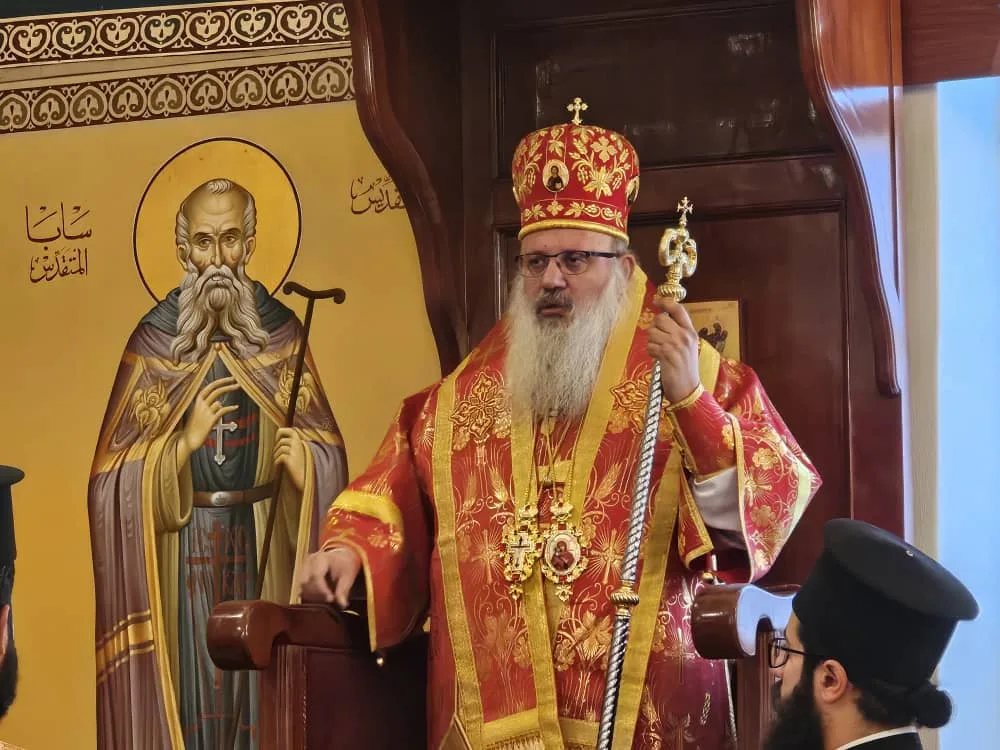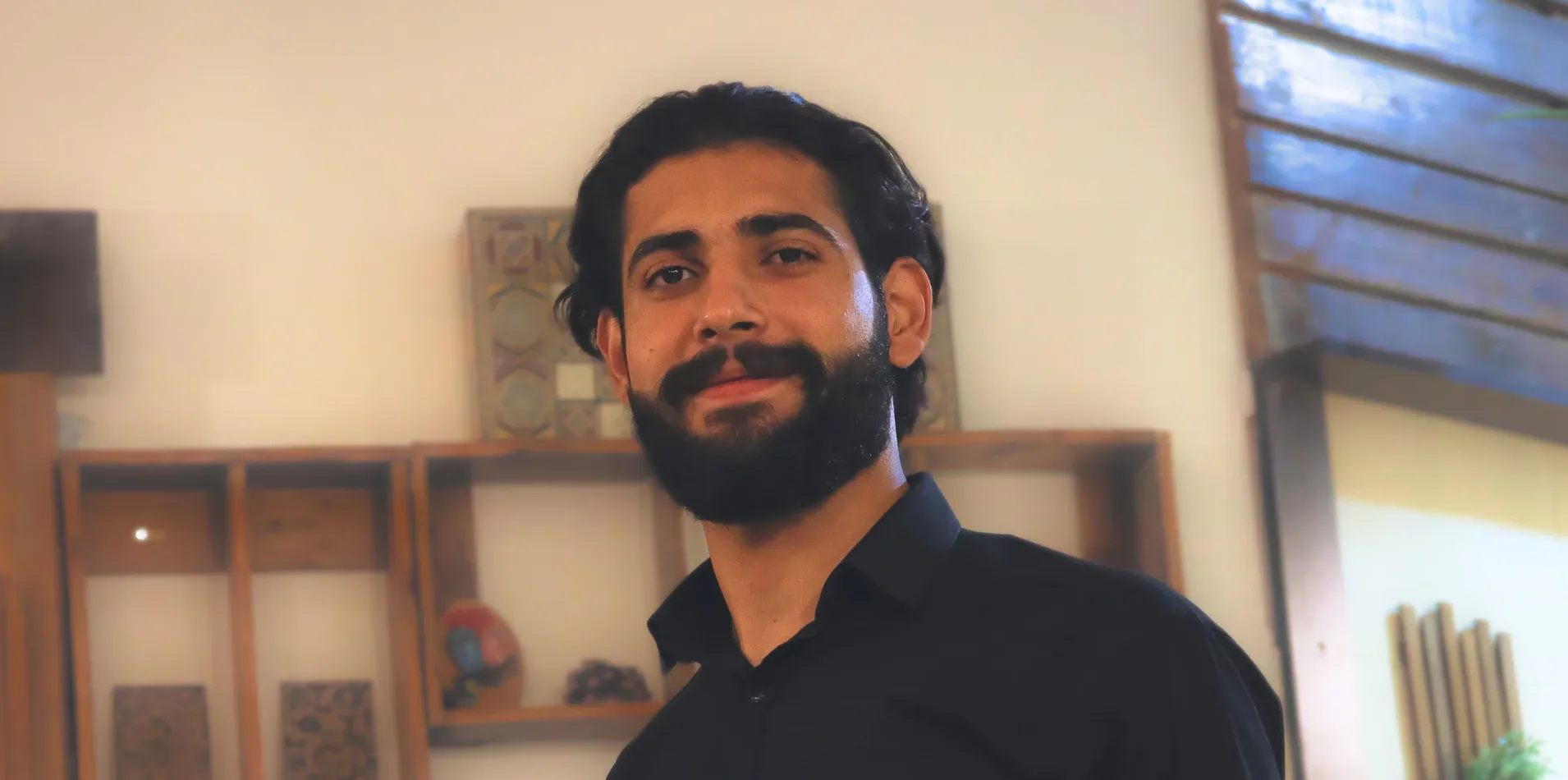Every Tuesday, the mothers of the missing and disappeared, joined by women from the city, gather at the Roman amphitheater in Shahba. Their vigils overflow with tears, pain, and waiting, as they demand the release of those forcibly disappeared from Sweida since mid-July; an event that changed the lives of the province forever.
The women’s gathering is no longer an unusual sight in Shahba. The amphitheater has become an open Greek-style tribunal: a space for holding killers to account, for confession, for tending the scars of loss, and for screaming aloud. On every tier, groups stand in solemn order. Their stories and muffled cries bleed out, joining together in a single chorus of the city’s grief.
The mothers need no photographs to prove their heartbreak, their wounds are already etched into their eyes and hearts. Yet they raise the portraits before the cameras, as though showing the world the beauty of faces now absent.
For my mother, Tuesday has become the day to change the bandage on a wound that never heals. She carries a photo of my brother, Hassan al-Halabi – missing since July 16 – and joins her companions. The ritual repeats each week, reminding the world that mourning cannot be completed, and that this absence is too vast to absorb.
She told me she would also join a special vigil on Saturday, September 27, 2025. Later she learned that a music group would be performing for the city’s martyrs. I saw her in the video of the event, clutching Hassan’s photo as if she didn’t belong there, yet still weeping bitterly alongside the mothers of the martyrs, singing with them in a broken voice, as if they were a chorus to the band: “Oh mother, oh Sweida…”
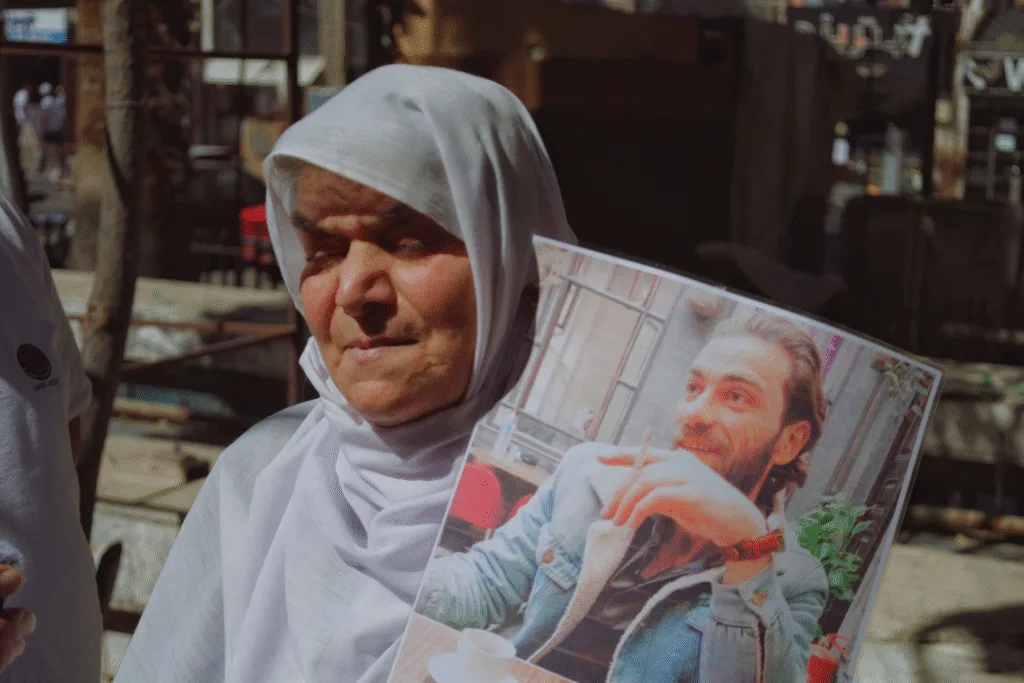
The amphitheater has become a living archive of truth: a silent history that embraces speaking faces, mothers who inscribe the story anew with their fingers, on the walls of time and the basalt of this land.
My mother carries Hassan’s photo whenever she leaves her rented house in Shahba. It is the only picture left on her phone, taken in Damascus, where he beams with joy after resubmitting his papers to the medical institute to resume his interrupted studies. Hassan had refused to join the regime’s army, refusing to carry weapons against his fellow Syrians. She clings to this photo, props it up despite her frailty and illness, as though keeping him upright, helping him remain standing.
Hassan, thirty years old and the youngest of us, lived with my mother in our village al-Soura al-Saghira, along the Sweida–Damascus road. He had secured a rented house for her in Shahba during the attack on the province, while he stayed in our home in al-Soura. There, on July 16, he was abducted and disappeared by armed groups loyal to the Syrian authorities.
Every morning, my siblings and I – scattered outside Syria – call each other. One question presses on us: Any news? At first, we hid Hassan’s disappearance from our mother, afraid for her health and her heart tied so closely to her youngest son. We spun excuses like bad phone connections, power outages, until she learned by chance from a neighbor. From that day on, her life became a battle of waiting and pain.
The Shahba amphitheater has become her pilgrimage every Tuesday. Despite weakness and difficulty, she climbs the mountain road carrying Hassan’s photo, sometimes helped by a ride, sometimes making her way alone. She joins the mothers she has come to know, sharing pain and hope like a dark loaf of bread, trading fragments of news and rumor, raising the photographs of their children against the void.
Each time my mother lifts Hassan’s picture with determination, it is as if she brings him a step closer, as if she sees him running toward her, carrying his dream like a sail: to be an ordinary student, to live an ordinary life, not just a name in Syria’s registry of the disappeared.
And I, far from Sweida, watch her each week in the photos and videos shared online. I see her tearful, waiting eyes and ask myself: When will Hassan return to her arms? When will all the disappeared return to the families blinded by tears and worn down by waiting?
